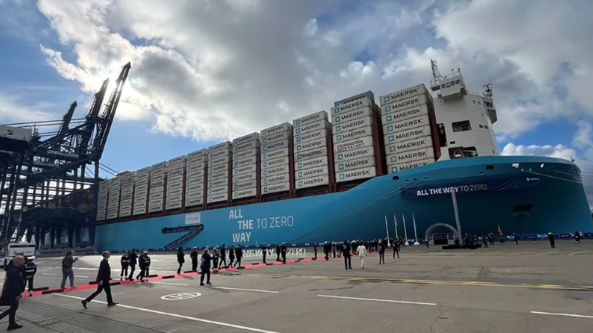A recent article on The Wall Street Journal website highlights growing opposition from American farmers, longshoremen, and shipping companies against the U.S. government's plan to impose a so-called "port fee" on Chinese-built vessels, reflecting widespread concerns over its economic fallout.
Around 300 companies, trade groups, and individuals have submitted comments or petitions opposing the proposed fee, warning that the policy could trigger a domino effect across industries.
Nils Haupt, spokesperson for Germany’s Hapag-Lloyd, pointed out that only China and South Korea currently possess the capability to build large container ships, with U.S. shipbuilding costs being twice as high as China’s. If carriers are forced to reroute, trans-Pacific shipping rates could surge by 600–600–800 per container, potentially adding $20 billion in annual costs to the industry—a calculation laid out by MSC CEO Søren Toft, underscoring the shipping sector’s collective unease.
From Greek shipowners to Philadelphia dockworkers, stakeholders foresee a ripple effect: the new fee would be passed down as an "operational cost" to shippers, ultimately hitting consumers. West Coast unions warn of job losses due to diverted cargo, while agricultural coalitions argue the policy would cripple U.S. export competitiveness. "Chinese buyers won’t pay a premium for U.S. soybeans," said Peter Friedmann, Executive Director of the Agriculture Transportation Coalition, bluntly capturing the policy’s potential backlash.

Last
7.7-Magnitude Earthquake in Myanmar Triggers Regional Logistics Crisis: Air Cargo Gridlock and Energy Corridor at Risk
A powerful 7.7-magnitude earthquake recently struck northwestern Sagaing Region, Myanmar, with aftershocks impacting Bangkok, Thai

Next
Maersk recently held the naming ceremony for its dual-fuel methanol vessel
Maersk recently held the naming ceremony for its dual-fuel methanol vessel,Adrian Mærsk, at APM Terminals Maasvlakte II in Rotterd




